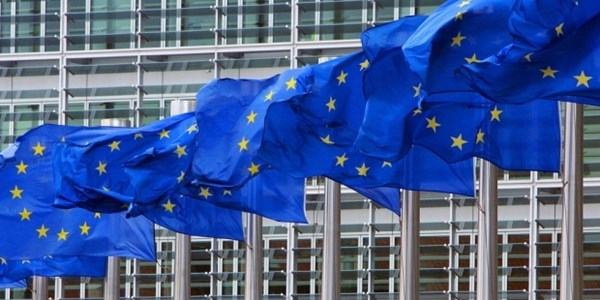EU extends sanctions against Russia over annexation of Crimea
The European Union has decided to extend sanctions against Russia because of the annexation of Ukrainian Crimea, reported the press service of the European Council.
"The EU does not recognize the illegal annexation of Crimea and Sevastopol by the Russian Federation and continues to condemn this violation of international law, in line with the declaration by the High Representative for Foreign Affairs and Security Policy on behalf of the EU on 25 February 2021," said the European Council in a statement.
The sanctions are aimed at specific sectors of the Russian economy. The EU has also introduced individual restrictive measures. They will remain in effect until June 23, 2022.
The document says that the sanctions introduce a ban on “EU imports of products originating in Crimea or Sevastopol, and infrastructural or financial investments and tourism services in Crimea or Sevastopol. Exports of certain goods and technologies to Crimean companies or for use in Crimea in the transport, telecommunications and energy sectors or for the prospection, exploration, and production of oil, gas, and mineral resources are also subject to EU restrictions”.
In June 2014, the European Union imposed sanctions against Russia because of the annexation of Crimea. Since July 2016, the restrictions are extended every six months.
In March, EU ambassadors agreed on new sanctions against individuals responsible for human rights violations in Crimea.
In February 2014, armed people in uniforms without insignias appeared in Crimea and captured the Supreme Council of Crimea, the Simferopol Airport, the Kerch ferry crossing, and other strategic objects, and prevented the Ukrainian army from taking action. Initially, the Russian government refused to acknowledge that these armed people were Russian soldiers, but President Vladimir Putin later admitted it.
On 16 March 2014, a so-called referendum on the status of Crimea was held in Crimea and Sevastopol, in which the inhabitants supposedly voted for the peninsula to become part of Russia. The outcome of the so-called referendum is not recognized by Ukraine, the EU, or the US. On 18 March, Putin announced the “annexation” of Crimea to Russia.
International organizations have declared the annexation illegal and condemned Russia’s actions. Western countries have imposed economic sanctions on Russia in connection with the annexation. Russia claims to have “restored historical justice”. Ukraine’s parliament, the Verkhovna Rada, declared 20 February 2014 the start of Russia’s temporary occupation of Crimea and Sevastopol.
